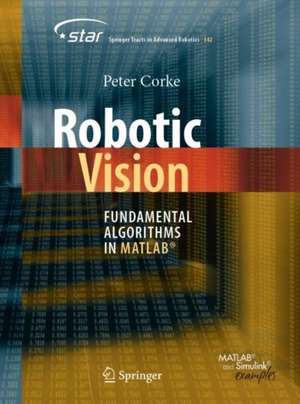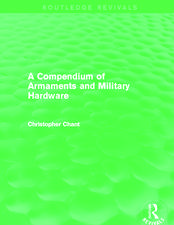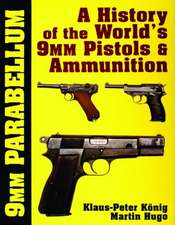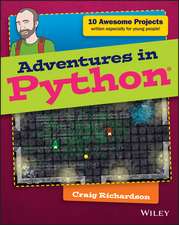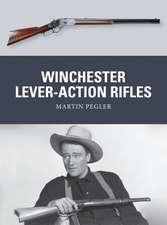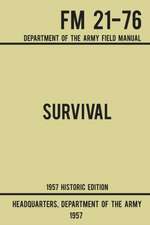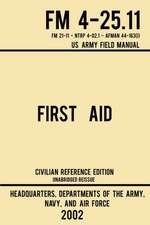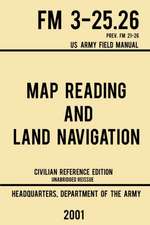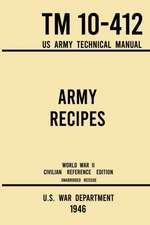Robotic Vision: Fundamental Algorithms in MATLAB®: Springer Tracts in Advanced Robotics, cartea 142
Autor Peter Corkeen Limba Engleză Paperback – 28 ian 2022
The practice of robotic vision involves the application of computational algorithms to data. Over the fairly recent history of the fields of robotics and computer vision a very large body of algorithms has been developed. However this body of knowledge is something of a barrier for anybody entering the field, or even looking to see if they want to enter the field — What is the right algorithm for a particular problem?, and importantly: How can I try it out without spending days coding and debugging it from the original research papers?
The author has maintained two open-source MATLAB Toolboxes for more than 10 years: one for robotics and one for vision. The key strength of the Toolboxes provide a set of tools that allow the user to work with real problems, not trivial examples. For the student the book makes the algorithms accessible, the Toolbox codecan be read to gain understanding, and the examples illustrate how it can be used —instant gratification in just a couple of lines of MATLAB code. The code can also be the starting point for new work, for researchers or students, by writing programs based on Toolbox functions, or modifying the Toolbox code itself.
The purpose of this book is to expand on the tutorial material provided with the toolboxes, add many more examples, and to weave this into a narrative that covers robotics and computer vision separately and together. The author shows how complex problems can be decomposed and solved using just a few simple lines of code, and hopefully to inspire up and coming researchers. The topics covered are guided by the real problems observed over many years as a practitioner of both robotics and computer vision. It is written in a light but informative style, it is easy to read and absorb, and includes a lot of Matlab examples and figures. The book is a real walk through the fundamentals light and color, camera modelling, image processing, feature extraction and multi-view geometry, and bring it all together in a visual servo system.
“An authoritative book, reaching across fields, thoughtfully conceived and brilliantly accomplished
Oussama Khatib, Stanford
Din seria Springer Tracts in Advanced Robotics
- 18%
 Preț: 910.26 lei
Preț: 910.26 lei - 18%
 Preț: 893.71 lei
Preț: 893.71 lei -
 Preț: 445.98 lei
Preț: 445.98 lei - 13%
 Preț: 371.07 lei
Preț: 371.07 lei -
 Preț: 522.45 lei
Preț: 522.45 lei - 15%
 Preț: 640.88 lei
Preț: 640.88 lei - 18%
 Preț: 783.98 lei
Preț: 783.98 lei - 15%
 Preț: 641.74 lei
Preț: 641.74 lei - 15%
 Preț: 640.88 lei
Preț: 640.88 lei - 18%
 Preț: 994.72 lei
Preț: 994.72 lei - 18%
 Preț: 778.45 lei
Preț: 778.45 lei - 18%
 Preț: 730.35 lei
Preț: 730.35 lei - 18%
 Preț: 1233.83 lei
Preț: 1233.83 lei - 18%
 Preț: 951.47 lei
Preț: 951.47 lei - 15%
 Preț: 640.06 lei
Preț: 640.06 lei - 18%
 Preț: 1844.67 lei
Preț: 1844.67 lei - 15%
 Preț: 642.51 lei
Preț: 642.51 lei - 18%
 Preț: 1112.30 lei
Preț: 1112.30 lei - 15%
 Preț: 665.08 lei
Preț: 665.08 lei - 18%
 Preț: 947.85 lei
Preț: 947.85 lei - 15%
 Preț: 640.88 lei
Preț: 640.88 lei - 18%
 Preț: 776.88 lei
Preț: 776.88 lei - 18%
 Preț: 959.04 lei
Preț: 959.04 lei - 15%
 Preț: 659.02 lei
Preț: 659.02 lei - 15%
 Preț: 654.95 lei
Preț: 654.95 lei - 18%
 Preț: 973.38 lei
Preț: 973.38 lei - 5%
 Preț: 724.70 lei
Preț: 724.70 lei - 18%
 Preț: 981.49 lei
Preț: 981.49 lei - 18%
 Preț: 954.45 lei
Preț: 954.45 lei - 15%
 Preț: 641.53 lei
Preț: 641.53 lei - 15%
 Preț: 653.98 lei
Preț: 653.98 lei - 24%
 Preț: 814.81 lei
Preț: 814.81 lei - 18%
 Preț: 968.65 lei
Preț: 968.65 lei - 18%
 Preț: 970.70 lei
Preț: 970.70 lei
Preț: 406.43 lei
Nou
Puncte Express: 610
Preț estimativ în valută:
77.77€ • 81.57$ • 64.74£
77.77€ • 81.57$ • 64.74£
Carte disponibilă
Livrare economică 11-25 martie
Livrare express 25 februarie-01 martie pentru 65.06 lei
Preluare comenzi: 021 569.72.76
Specificații
ISBN-13: 9783030791742
ISBN-10: 3030791742
Pagini: 412
Ilustrații: XXV, 412 p. 235 illus., 191 illus. in color.
Dimensiuni: 193 x 260 x 25 mm
Greutate: 1.13 kg
Ediția:2022
Editura: Springer International Publishing
Colecția Springer
Seria Springer Tracts in Advanced Robotics
Locul publicării:Cham, Switzerland
ISBN-10: 3030791742
Pagini: 412
Ilustrații: XXV, 412 p. 235 illus., 191 illus. in color.
Dimensiuni: 193 x 260 x 25 mm
Greutate: 1.13 kg
Ediția:2022
Editura: Springer International Publishing
Colecția Springer
Seria Springer Tracts in Advanced Robotics
Locul publicării:Cham, Switzerland
Cuprins
Introduction.- Part I: Foundations- Representing Position and Orientation.- Part II: Computer Vision.- Light and Color.- Images and Image Processing.- Image Feature Extraction.- Part III: The Geometry of Vision.- Image Formation.- Using Multiple Images.- Index.
Notă biografică
The author is the organizer of the venerable Robotics Toolbox for Matlab with 100.000 + downloads per year (as well as the Vision Toolbox for Matlab)
Peter Corke has been appointed new Editor of the IEEE Robotics and Automation Magazine.
Peter Corke has been appointed new Editor of the IEEE Robotics and Automation Magazine.
Textul de pe ultima copertă
This textbook provides a tutorial introduction to classical Computer Vision. It is written in a light but informative narrative style, and includes many figures and MATLAB examples. The book takes the reader through the fundamentals of light and color, image processing, feature extraction, image formation and camera modelling, and multi-view geometry. Advanced topics include non-perspective cameras, light-field cameras, calibration, stereo vision and bundle adjustment.
The Machine Vision Toolbox for MATLAB is free and open software that enables the reader to easily bring the algorithmic concepts into practice and work with real, non-trivial, problems. For the beginning student the book makes the algorithms accessible, the Toolbox code can be read to gain understanding, and the examples illustrate how it can be used. The code can also be the starting point for new work, for researchers or students, by writing programs based on Toolbox functions, or modifying the Toolbox code itself.
The Machine Vision Toolbox for MATLAB is free and open software that enables the reader to easily bring the algorithmic concepts into practice and work with real, non-trivial, problems. For the beginning student the book makes the algorithms accessible, the Toolbox code can be read to gain understanding, and the examples illustrate how it can be used. The code can also be the starting point for new work, for researchers or students, by writing programs based on Toolbox functions, or modifying the Toolbox code itself.
Caracteristici
Robotic Vision” is a readable introduction to the new field of robotic vision which weaves together theory, algorithms and examples in an accessible narrative that covers computer vision algorithms applicable to robotics Serves as tutorial introduction The book covers light and color, camera modelling, image processing, feature extraction and multi-view geometry The reader is encouraged to experiment and gain hands-on experience with these algorithms using MATLAB in conjunction with free companion software Includes a lot of Matlab examples and figures and is written in a light but informative style, easy-to-read and absorb Explains how to choose the right algorithm to decompose and solve complex problems, using just a few simple lines of code Demonstrates how the code can also be the starting point for new work via writing programs based on Toolbox functions, or modifying the Toolbox code itself
